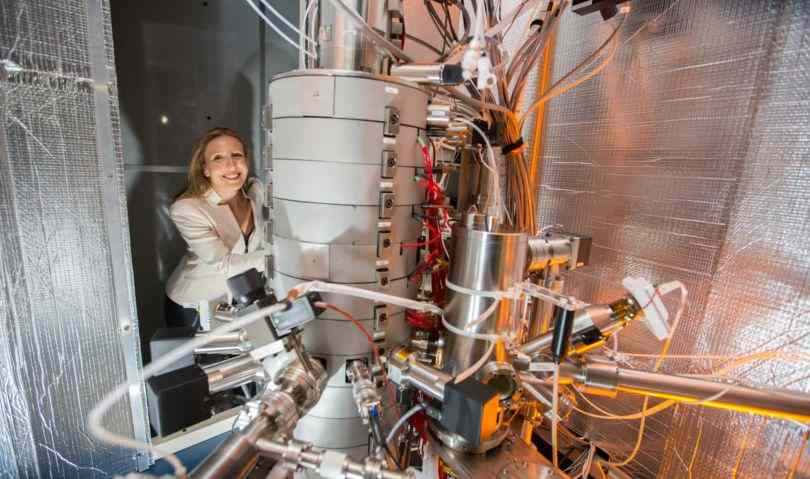Trinity College Dublin has acquired one of the world’s most powerful microscopes, whose presence in Ireland is also a first for the country.
Amber, the Science Foundation Ireland-funded materials science centre based at the Crann Institute in Trinity is now home to a Nion UltraStem 200. The microscope can analyse single atoms and objects a million times smaller than a human hair, and has important uses in fields such as ICT, pharmaceuticals and materials science.
The purchase of the €5.7m Nion microscope was funded by Science Foundation Ireland and will be one of the top ten microscopes in the world. It is housed in the advanced microscopy laboratory located in the Trinity Technology and Enterprise Campus.
Professor Valeria Nicolosi (pictured), principal investigator at Amber, said that the instrument will enable industry and academic users to accelerate their innovations.
“This new pioneering equipment will allow us to provide opportunities for new kinds of experiments. We anticipate scientists to travel from all over Europe to use it, and some have started already,” she added.
Dr Patrick Prendergast, provost of Trinity College Dublin, said: “The new microscope heralds a new era of research in a wide range of materials, and this ensures that Ireland remains at the forefront of world-class research, which ultimately will benefit society at large.”
The Nion microscope works by scanning a beam that has been focused down to the size of an atom across a sample, providing chemical information on the sample at the same time.
In order to function accurately, the microscope will be stabilised so that it will shift no more than half a millimetre in 100 years.








